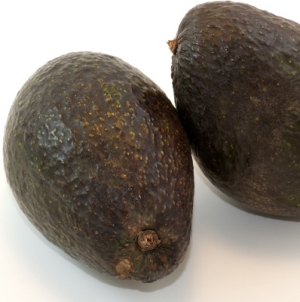PRIMARY INDUSTRIES Minister Nathan Guy is welcoming a new Primary Growth Partnership (PGP) programme for the avocado industry, which aims to triple productivity and quadruple returns by 2023.
'Go Global' is an $8.56 million programme, with $4.28 million coming from the Government via PGP funding. It will be a five year partnership between the Avocado Industry Council and the Ministry for Primary Industries (MPI).
"This is the first PGP programme involving the horticultural industry and will help the industry work together to capitalise on the growing demand here and overseas," says Guy.
"Australia is currently the biggest market for New Zealand avocado, but this project will help expansion into Asian countries where there is major potential.
"It will also work to improve best practice on orchards, tackling the unpredictable yields the industry often faces due to weather conditions and management.
"This is a prime example of what the PGP is designed to achieve, boosting productivity and innovation across the primary industries.
"The programme will also focus on sharing knowledge across the industry. It's great to see New Zealand's primary sectors working collaboratively to increase value and benefits not just for this sector, but the wider New Zealand economy."
The programme aims to triple the productivity of New Zealand's avocado industry, and quadruple returns to $280 million by 2023.
The 10th funding round for PGP programmes has also opened today.
"The PGP supports innovation in our most important and productive industries. It's also a major boost to regional development. I encourage industry players to talk with MPI about the criteria for PGP programmes and ideas they might have," says Guy.
Background on PGP
• There are now 18 PGP programmes announced with $708 million in funding committed from both industry and government. The potential benefit to the wider economy from these programmes is expected to be around $7 billion per year from 2025.
• The PGP aims to boost the productivity and profitability of our primary sector through investment between government and industry. It provides an essential springboard to enable New Zealand to stay at the forefront of primary sector innovation.
• PGP programmes are generally long-run programmes of five to seven years' duration and are subject to oversight and monitoring by an independent panel (the Investment Advisory Panel) and MPI.
• Monitoring requirements include programme steering groups, quarterly progress reporting, annual plans, audits, and progress reviews, along with evaluation of the overall programme. Funding is only released to programmes on receipt of invoices for work completed in accordance with programme plans.
• MPI is now seeking applications for new Primary Growth Partnership programmes. Applications must be received by MPI by 12pm on Wednesday 25 June. See the PGP webpage on MPI's website for further information and guidance.
• For further information about the PGP, please visit: www.mpi.govt.nz



















